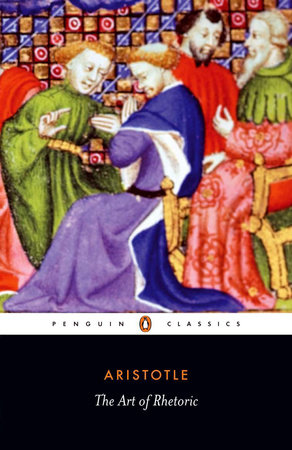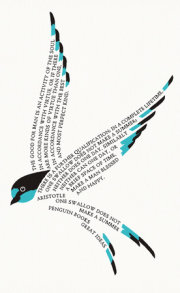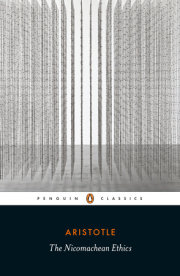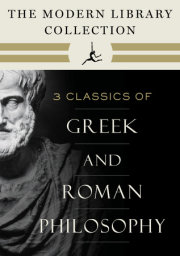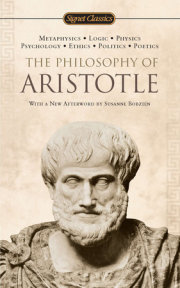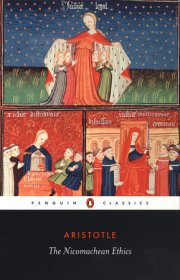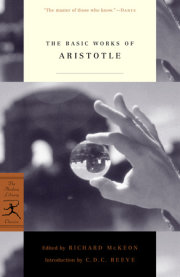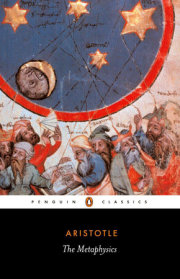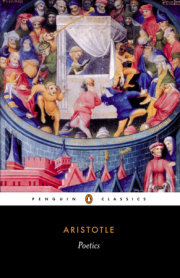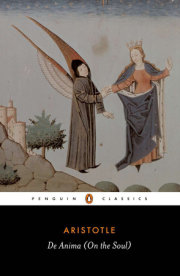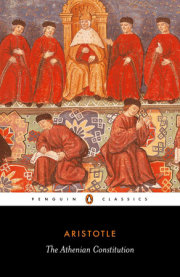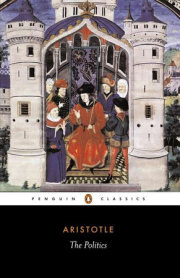The Art of Rhetoric - Aristotle
Translated with an Introduction and Notes by Hugh Lawson-TancredPreface
Introduction:
1. The Importance of Ancient Rhetoric
2. The Historical Background to the Rhetoric
3. Rhetoric as Techne
4. Psychology in the Rhetoric
5. Style and Composition
6. The Rhetorical Legacy of Aristotle
7. The Translation
THE ART OF RHETORICSection One: Introductory
Chapter 1.1. The Nature of Rhetoric
PART ONE: DEMONSTRATIONSection Two: The Genres of Oratory
Chapter 1.2. The Definition of Rhetoric
Chapter 1.3. The Genres
Section Three: Deliberation
Chapter 1.4. The Province of Deliberation
Chapter 1.5. Happiness
Chapter 1.6. The Good and the Expedient
Chapter 1.7. Relative Expediency
Chapter 1.8. Constitutions
Section Four: Display
Chapter 1.9. Display Oratory
Section Five: Litigation
Chapter 1.10. Injustice
Chapter 1.11. Pleasure
Chapter 1.12. The Criminal Mind
Chapter 1.13. Crime and Punishment
Chapter 1.14. Relatively Serious Crimes
Chapter 1.15. Non-technical Proofs
PART TWO: EMOTION AND CHARACTERSection Six: Emotion
Chapter 2.1. The Role of Emotion and Character
Chapter 2.2. Anger
Chapter 2.3. Calm
Chapter 2.4. Friendship and Enmity
Chapter 2.5. Fear and Confidence
Chapter 2.6. Shame
Chapter 2.7. Favour
Chapter 2.8. Pity
Chapter 2.9. Indignation
Chapter 2.10. Envy
Chapter 2.11. Jealousy
Section Seven: Character
Chapter 2.12. Youth
Chapter 2.13. Old Age
Chapter 2.14. Prime
Chapter 2.15. Birth
Chapter 2.16. Wealth
Chapter 2.17. Power
PART THREE: UNIVERSAL ASPECTSSection Eight: Common Topics
Chapter 2.18. The Role of Common Topics
Chapter 2.19. The Topics of Possibility
Chapter 2.20. Example
Chapter 2.21. Maxim
Chapter 2.22. Enthymeme
Chapter 2.23. Demonstrative Common Topics
Chapter 2.24. Illusory Topics
Chapter 2.25. Refutation
Chapter 2.26. Amplification
Section Nine: Style
Chapter 3.1. Historical Preliminary
Chapter 3.2. Clarity
Chapter 3.3. Frigidity
Chapter 3.4. Simile
Chapter 3.5. Purity
Chapter 3.6. Amplitude
Chapter 3.7. Propriety
Chapter 3.8. Rhythm
Chapter 3.9. Syntax
Chapter 3.10. Wit and Metaphor
Chapter 3.11. Vividness
Chapter 3.12. Suitability to Genre
Section Ten: Composition
Chapter 3.13. Narration and Proof
Chapter 3.14. The Introduction
Chapter 3.15. Prejudice
Chapter 3.16. Narration
Chapter 3.17. Proof and Refutation
Chapter 3.18. Altercation
Chapter 3.19. The Epilogue
Notes
Bibliography

